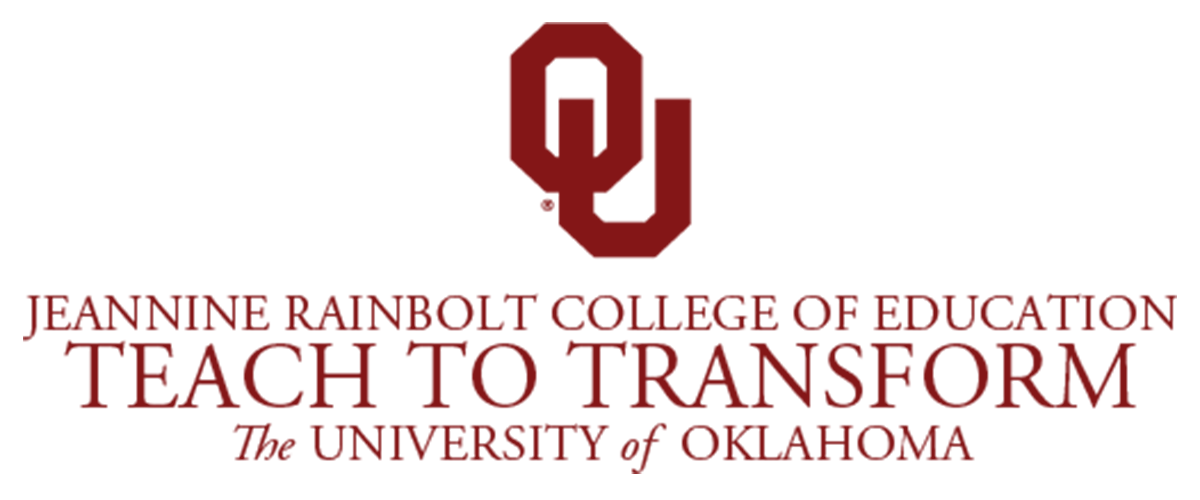
TEACH to Transform
One of the projects that Dean Stacy Reeder has been eager to get off the ground since taking over the Jeannine Rainbolt College of Education leadership position in April 2021 is TEACH to Transform.
TEACH to Transform aims to transform the educational experiences and lives of students who are often marginalized and underserved in current educational systems, through a commitment to diversity, equity and justice. As educators empower students to see their lived experiences as valuable, they must also advocate for systematic improvements, resources and supports that promote equity and provide broad sweeping acceptance, celebration and fostering of our diversity. For our society to flourish, teachers must embrace their role as change agents who can help transform the lives of students, communities and institutions.
“Over the last few years, we have been talking about how demographics in schools are changing, where we have a larger number of students of color in our public-school systems,” Reeder said. “Yet in our college and across the nation, teacher preparation programs tend to not be as diverse as the public schools they will be serving.”
This program will recruit students from the OKC metro and beyond to OU and the teaching profession. Specifically, the program will focus on first-generation students and students from historically marginalized communities — areas where there is desperate need for representation in classrooms.
According to the Pew Research Center, in 1997, over 63% of the 46.1 million U.S. public school students were white. By the fall of 2018, the National Center for Education Statistics showed white students comprise just 47% of the 50.7 million students enrolled. By 2043, the nation is projected to become majority-minority. While the student population is changing, teacher diversity remains stagnant. Research has shown that having a teacher of the same race/ethnicity can have positive impacts on a student’s attitudes, motivation and achievement, and minority teachers may have more positive expectations for minority students’ achievement.
“I started thinking about this program two years ago, before the pandemic, and I spent the summer reading articles and books on the impact that teachers from underrepresented communities can have on students from those same communities,” Reeder said. “The pandemic slowed things down, but throughout we have been in conversations with schools and to a person everyone is incredibly excited about this.”
“For me it meets two critical needs in the state: first, the teacher shortage. We need to be preparing and graduating more teachers in this state, period. But we also need those teachers to represent the students they will serve and have a deeper understanding of the communities they serve.”
Ja’Corie Maxwell was hired this summer to serve as director of the program. Maxwell, who earned his master’s degree in education from the college in 2019 and is currently a doctoral student, is a former classroom teacher in Muskogee Public Schools.
“Our goal is to recruit and retain first-generation and students of color, give them a great teacher education experience and have them go back into their communities and hopefully change lives,” Maxwell said. “Our first goal is for eight to 10 students, which we are confident we can achieve. If we get more, great. Eventually we would like to see that number grow to 30 students a year.”
“I remembered Ja’Corie from when he was our graduation speaker a few years ago and how passionately he spoke about being a teacher of color and the impact he felt that was making in the lives of his students,” Reeder said. “I also heard about the great work he was doing from other faculty members, so when I thought about who could lead this program, he immediately came to mind.”
This semester Maxwell has been connecting with existing on-campus resources to build a network that will be available to TEACH to Transform Scholars once they set foot on the OU campus. The goal is to support these students through their journey, whether it is academically, financially or emotionally. Discussions have also begun with schools in the community to help identify recruits for the first cohort in the fall of 2022.
“Finances are a big hurdle for most college students, so one of the first things we looked at is where can we find those supports. Teaching is not the most well-funded profession, and we want to mitigate as much of that cost as we can.”
Project Threshold is one of the partners that can help with first-generation students. Connecting students with on-campus job opportunities is another way Teach to Transform can help students navigate the world of higher education. There are also opportunities within the college with the Debt Free Teachers and Teach Grant programs. Educational support will also be important, helping with tutoring or licensing exam test prep.
“While it is important to start pulling these resources together, we also need students on campus to learn what their actual needs are,” Maxwell said. “Right now, we don’t know exactly what support looks like. It will be dependent on every cohort and what those students need individually. But we want to make sure we have as much in our arsenal as we can. Our goal is to empower them from their first day here until their first day in their own classroom and beyond.”
In early talks, the schools and districts are excited about the program and the opportunity to “grow their own.” Getting students started with future teacher clubs and a program like Teach to Transform could lead to them returning to their communities and filling desperately needed educator roles.
“Hopefully, those students will return, and schools will have someone who is familiar with the students, the space and that will make their overall culture strong,” Maxwell said. “We want this program to be flexible to grow and fit the needs of the students and the schools in the community.”
